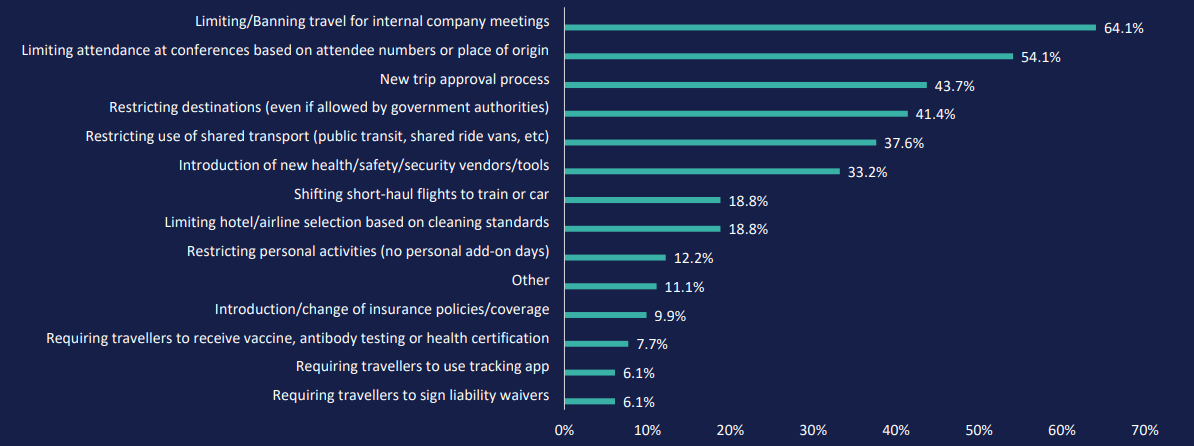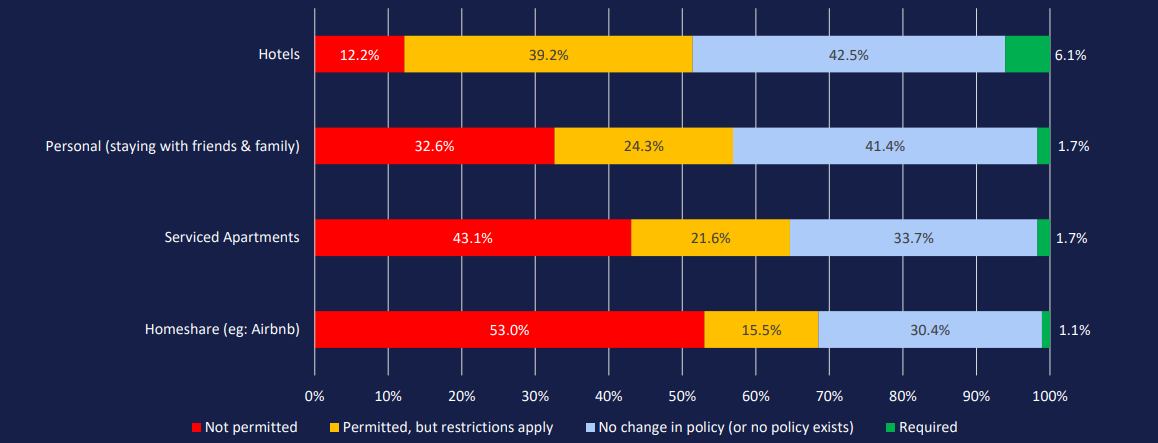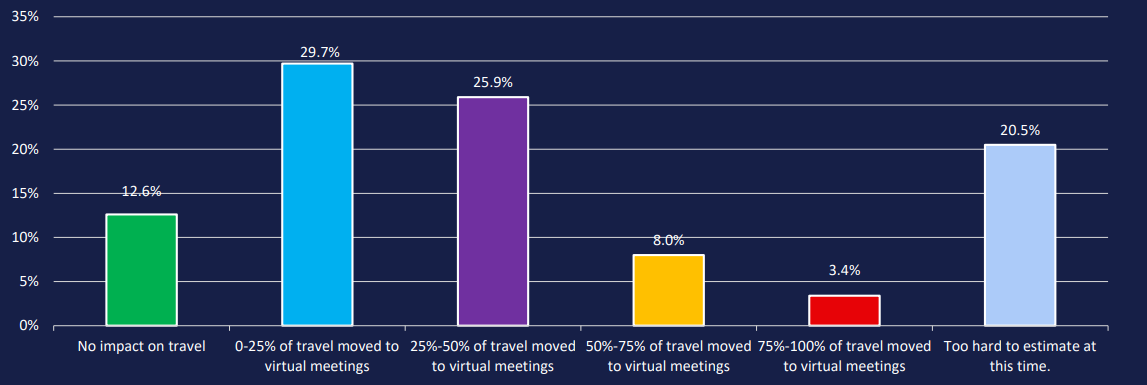But how will geography impact the recovery of corporate travel? Recent research from travel management company Uniglobe Travel has shown that companies in Europe are almost twice as likely as those in North America to have employees travelling now, or expect to have travel within the next three months.
As Covid-19 is under better control in Europe this is no real surprise, but the scale of difference perhaps is! Uniglobe Travel's Corporate Travel Policy Survey of over 250 corporate clients found just 32% of North American companies indicated that they have employees currently travelling, will do so within a month, or within 2-3 months, compared to 61% of European companies. Globally, the average was 48.7%.
North Americans are also less confident about the future with 51% saying they don't know or its too early to say when their employees will start travelling, compared with 27% of Europeans.
The survey, conducted between 15-25-Jun-2020 asked travel managers and decision makers from corporate accounts to answer 14 questions about how their travel policy was changing to reflect the Covid-19 travel environment and their timing and expectations about the resumption of travel.
CHART - Amongst companies that have changed policy or are planning to do so limiting/banning travel for internal company meetings and limiting attendance at conferences based on attendee numbers or place of origin have been adopted by more than half the survey's respondents Source: Uniglobe Travel Corporate Travel Policy Survey
Source: Uniglobe Travel Corporate Travel Policy Survey
In line with Europe's earlier expectations of travel, 56% of European companies had already made travel policy changes compared with only 41% of North American companies. The most common policy changes globally were limiting or banning travel for internal meetings (64.1%) followed by limiting participation at meetings or conferences based on attendee numbers or places of origin (54.1%).
Additionally, the research shows fewer than 10% of companies intend to introduce or change insurance policies (9.9%), require travellers to have a vaccine or take antibody tests (7.7%), have travellers sign liability waivers (6.1%), or require use of a tracking app (6.1%). Meanwhile, amongst accommodation types, there is a strong preference for hotel while most companies (53%) intend to ban use of homeshare.
CHART - Amongst companies that have changed policy or are planning to do so there is a stronger skew towards using hotels rather than homeshares Source: Uniglobe Travel Corporate Travel Policy Survey
Source: Uniglobe Travel Corporate Travel Policy Survey
"Looking at the travel policy changes, there is a discernible traveller-centric approach," says Martin Charlwood, president and chief operating officer for Uniglobe Travel International. "The least popular policy changes are those that impact traveller rights and privacy - such as requiring them to sign liability waivers, use a tracking app or restricting their personal activities including staying with friends and family during a business trip."
To say the goalposts have moved in corporate travel is an understatement and this research also gives us some additional insights into those environmental and sustainability discussions that had dominated planned future corporate strategies ahead of the global spread of Covid-19. Will such a promise to the environment remain when there are now so many more facets in every trip decision?
As Andrew Henry, VP US operations for Uniglobe Travel International acknowledges that while companies have "increasingly been prioritising sustainability within travel programme" actually "balancing sustainability with physical distancing can be problematic".
"Many forms of environmentally friendly travel - such as shared transport - are less popular or viable at this time," he explains, but the survey results show encouraging signs that a sustainability focus will remain.
The findings shows that of those companies that had sustainability elements in their pre-Covid-19 travel policy, over half (55.3%) of those expect the sustainability policies to be strengthened or enhanced in the next 18 months, while a further 42.9% say it will be maintained. It is encouraging that only 1.8% expect it to be weakened or eliminated. More concerning is the fact that only one in five (21.3%) of the businesses surveyed included sustainability in their policies.
Technology adoption and its impact on corporate travel has been one of the big questions that remains unanswered. It is widely accepted that some level of corporate travel will be lost to the platforms that have helped keep business going during prolonged lockdowns but what scale? Some even suggest that the two platforms will deliver a blended solution that could help boost the level of trade helping to maintain corporate travel levels.
CHART - From the Uniglobe Travel research we learn that for the period after widespread availability of a vaccine, only 11.4% of respondents expected to see 50% or more of travel to be moved to virtual/video meetings, albeit one in five feel it is too early to even estimate the level Source: Uniglobe Travel Corporate Travel Policy Survey
Source: Uniglobe Travel Corporate Travel Policy Survey